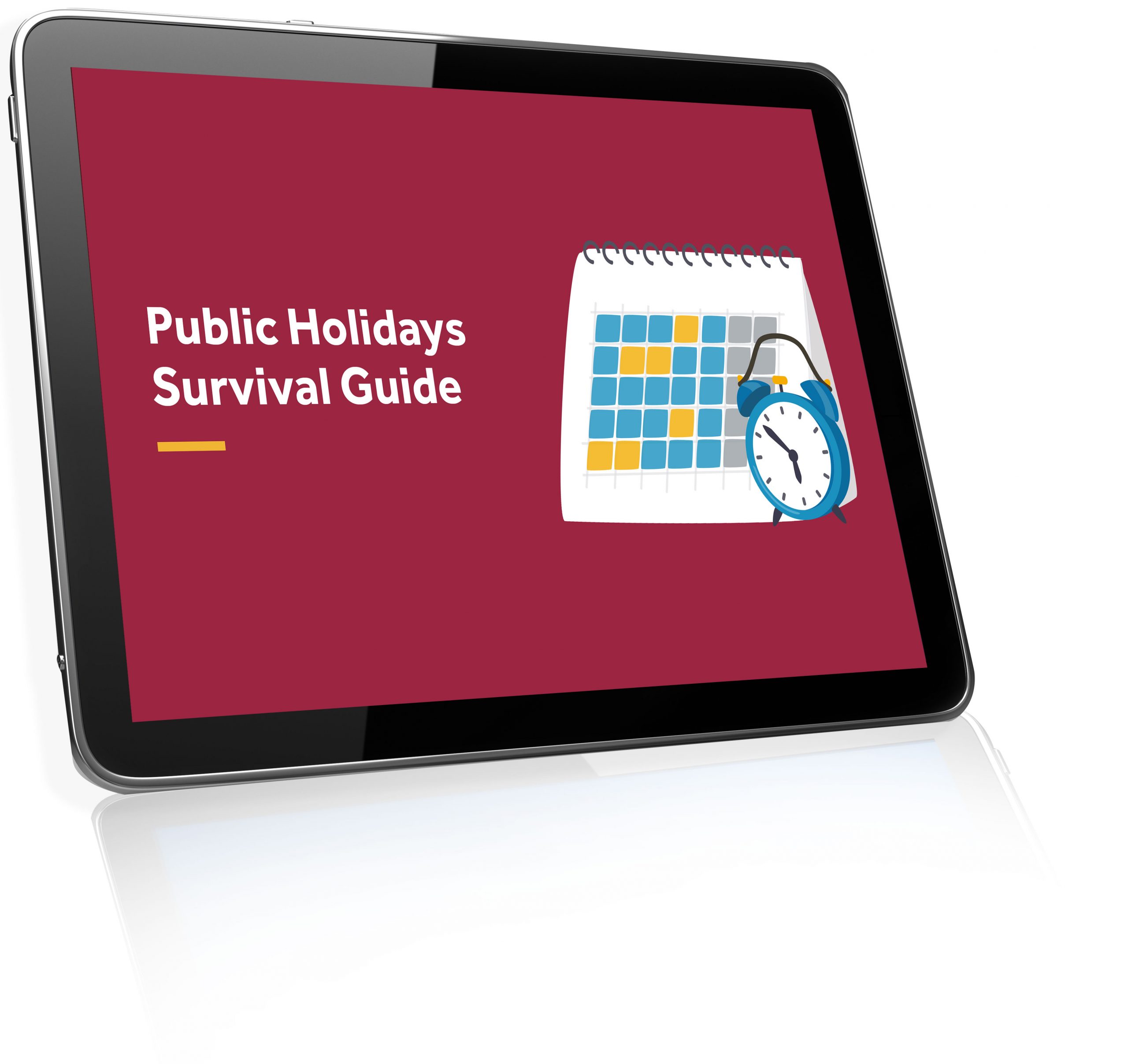
2022 has been a challenging year for business owners and employers. What does 2023 hold for them? Let’s look at some of the key workplace trends for 2023.
These workplace trends are an indicator of the issues small business owners need to take note of.
E-commerce emergence
As countries locked down and businesses were forced to close, consumers relied on e-commerce. According to Shopify, at the height of the COVID-19 pandemic 10 years of e-commerce growth happened in just 90 days.
Nearly 150 million people shopped online for the first time during the pandemic, and the number of online shoppers continued to rise. E-commerce global retail sales will continue to grow over the next five years. If you think being a small business owner in a product category may not concern you, rethink. Competitors in product categories have started to compete in the e-commerce category. Legacy wholesalers, retail giants, and health and personal care suppliers are all expanding their digital presence.
In 2021, retail e-commerce sales amounted to approximately $5.2 trillion worldwide. This figure is expected to grow by 56% in the next four years, reaching $8.1 trillion by 2026.
Specific categories like electronics, home improvement, and furnishings have been able to main their post-pandemic growth.
Within e-commerce, mobile commerce also is a significant way to attract new customers. Most people check their mobile phones about 96 times a day, which equates to at least once every 10 minutes. Mobile commerce is also expected to account for 1 in 6 retail dollars in the US. Consumers access online shops, apps, and websites through mobile phones. You can benefit exponentially by facilitating a streamlined and seamless e-commerce consumer experience.
These numbers indicate that small businesses can no longer ignore e-commerce or its potential.
Social media presence
There are 4.74 billion global social media users as of October 2022, equating to 59.3% of the total population. Over 9 in 10 internet users use social media each month. Facebook remains the world’s most widely used social media platform, but six social media platforms claim one billion or more monthly active users.
Global sales concluded through social media (social commerce) was expected to reach $492 billion in 2021. It is expected to grow three times faster than traditional e-commerce, reaching $1.2 trillion by 2025.
This is good news for small businesses. 59% of social buyers surveyed were more likely to support small and medium-sized businesses through social commerce. A further 63% said they were more likely to buy from the same seller again, showing the power of social commerce in creating loyalty and driving repeat purchases.
In 2023, we expect to see businesses go beyond traditional platforms and advertising to focus on building consumer communities. Companies with an authentic social media strategy will see an impact on their sales. An essential part of this strategy will be creating active participation with your brand and building that relationship. This could mean trying newer forms of advertising and marketing such as influencer marketing.
Social commerce is a natural progression of e-commerce, relying on social platforms and user experiences to drive sales. Some examples of social commerce would be Facebook Marketplace, Lyst, Groupon, and Instagram shopping. It creates an in-person marketplace digitally and offers a personal touch.
Sustainability
There has been a cultural and societal shift towards sustainable products and services. 85% of consumers have said they shifted their purchasing behaviour towards being more sustainable in the past five years. One-third of millennials will choose a sustainable alternative when available. Millennials and Gen Z form a powerful part of the consumer system and continue to represent a large demographic share. Companies that don’t consider sustainability as a part of their core offering need to wake up before they start losing market share.
The relative importance of sustainability will continue to increase. 50% of consumers rank sustainability as a top five value driver. Companies that adopt ESG (environmental, social, and governance) will be able to attract consumers and improve their social capital.
ESG involves focusing on measures to lower pollution and CO2 output and reduce waste. It also consists of having a diverse and inclusive workforce. Australian businesses have shied away from sustainability, with only a third (33%) putting sustainability at the heart of what they do. While small business owners have done remarkably well in supporting local communities, they struggle to understand sustainability and how to integrate it effectively. They think of sustainability and think of additional costs, but things like being energy efficient or using less or re-using materials can save money.
If you integrate sustainability within your business strategy, you can get a first-mover advantage and create trust among your consumers.

In recent months, we have seen employers and businesses try to bring back employees to the office. Employees are not so quick to change their minds. More than two-thirds of remote workers have said they would look for a new job if their company required them to work in-office full-time. This trend will continue into 2023, with employees seeking flexibility and hybrid work arrangements. Remote working allows SMEs to expand globally. It is also perfect for the knowledge economy and businesses seeking to work with a global workforce.
Small business owners who can’t offer remote working should consider offering similar benefits- flexible work, autonomous work timings, and early start or finish times. Remote work, working from home, or working from anywhere is one of the workplace trends that will continue to dominate in 2023.
Diverse workforces
Small business owners are increasingly under 35, female, and from a more diverse cultural background in Australia. These cultural shifts to the makeup of Australian small business owners will strengthen the economy. Diverse teams also tend to gain 20% higher revenues from innovation. While diversity may not be the only factor for that success, it plays an important role.
Diverse workforces and teams are willing to innovate and have access to various perspectives and points of view.
Diverse workplaces and workforces are not just a trend but a commitment and reflection of the Australian community. By encouraging unique talents and experiences, you enrich your business.
Specialised education
Entrepreneurship means life-long learning and education. As a business owner, you must be updated about emerging trends, topics, and data in your industry. It will also consist of understanding your legal obligations as an employer.
One of the important workplace trends in 2023 is the focus on specialized and hyper-focused education and learning. For employees, it is about upskilling and adding to their portfolio.
For employers, it is about working with experts in employment relations to understand your employer’s obligations.
Australia has 150+ Modern Awards. What do they mean for your business? How does a minimum wage increase impact your business and employees?
Four-day work week
Companies across the world have trialled the four-day workweek with impressive results. Recently, 100 major companies in the UK announced they will be joining the 4-Day Week Campaign. In 2023, we can expect several companies to adopt this modern approach and this idea to gain momentum.

Public Holiday Survival Guide
Learn about public holiday pay for employees, including who is entitled to what rate and the impact of any leave.
Respect@Work Laws
The significant Respect@Work legislation passed the Australian parliament. It will mean employers now have a ‘positive duty’ to prevent sex discrimination, as well as sexual harassment and victimisation in the workplace. There are 12 months before the laws effect, however, employers are encouraged to introduce the necessary changes required earlier.
2023 will see a shift in the support mechanisms available for employees and improve the training and education resources for staff. Employers will have to keep up with these changes or risk facing potential action.
Carer labels
The Albanese government has repeatedly emphasised the importance of flexibility at work. In a bid to support this, employers are removing the ‘primary’ and ‘secondary’ carer labels typically applied to paid parental leave policies. KPMG, ING, and Baker McKenzie removed such definitions to ensure all staff has access to the same policies on paid parental leave.
The removal of these distinguishing labels will encourage men to take parental leave and allow the women or primary carers to have someone to share the workload and responsibilities with.
Paid parental leave
In 2023, we can expect to see small to medium-sized businesses offering paid parental leave as they slowly start to recognize the benefits.
Businesses with family-friendly policies and practices have been found to report lower levels of employee sick leave and improved employee morale. These companies also have higher levels of staff retention and engagement. Having a paid parental leave program can also act as an incentive to attract employees.
Again, parental leave is not just one of the many workplace trends that impact small businesses but an issue that affects employees across the country.
Grow with Employsure
Employsure has worked with 30,000 business owners in Australia and New Zealand. We understand the challenges small business owners are facing. We know how workplace trends can affect your employees and how to navigate the tricky employment relations system.
Call our 24/7 Advice Line today to get all your questions answered.
